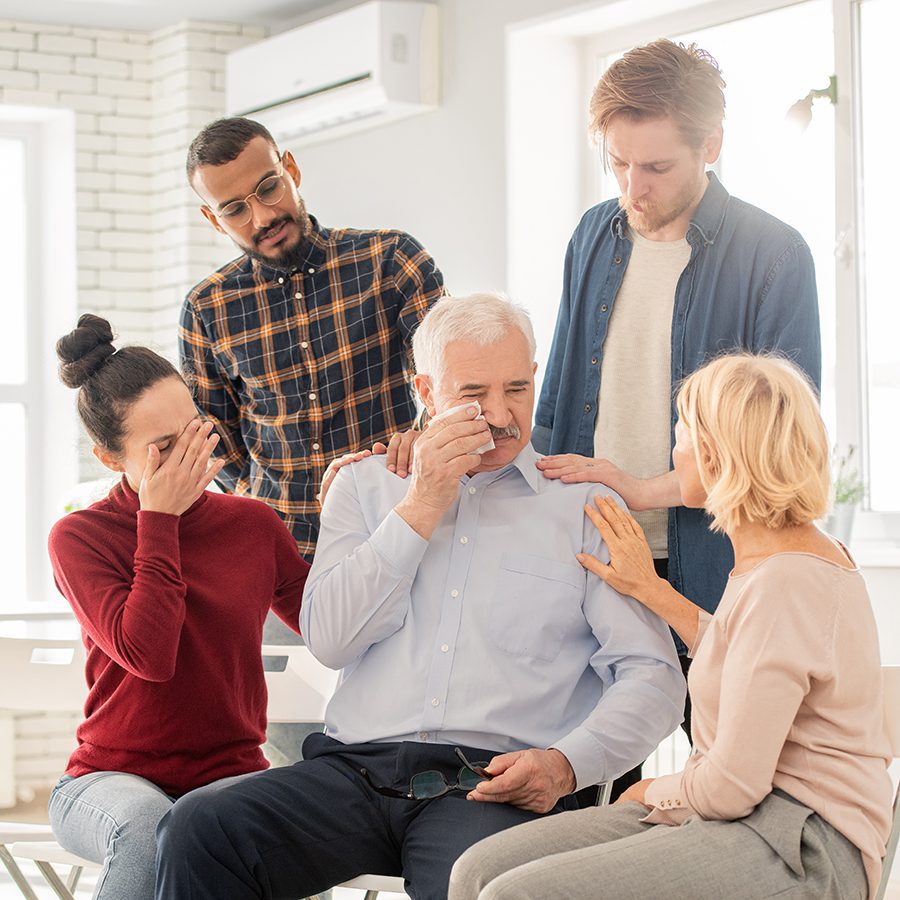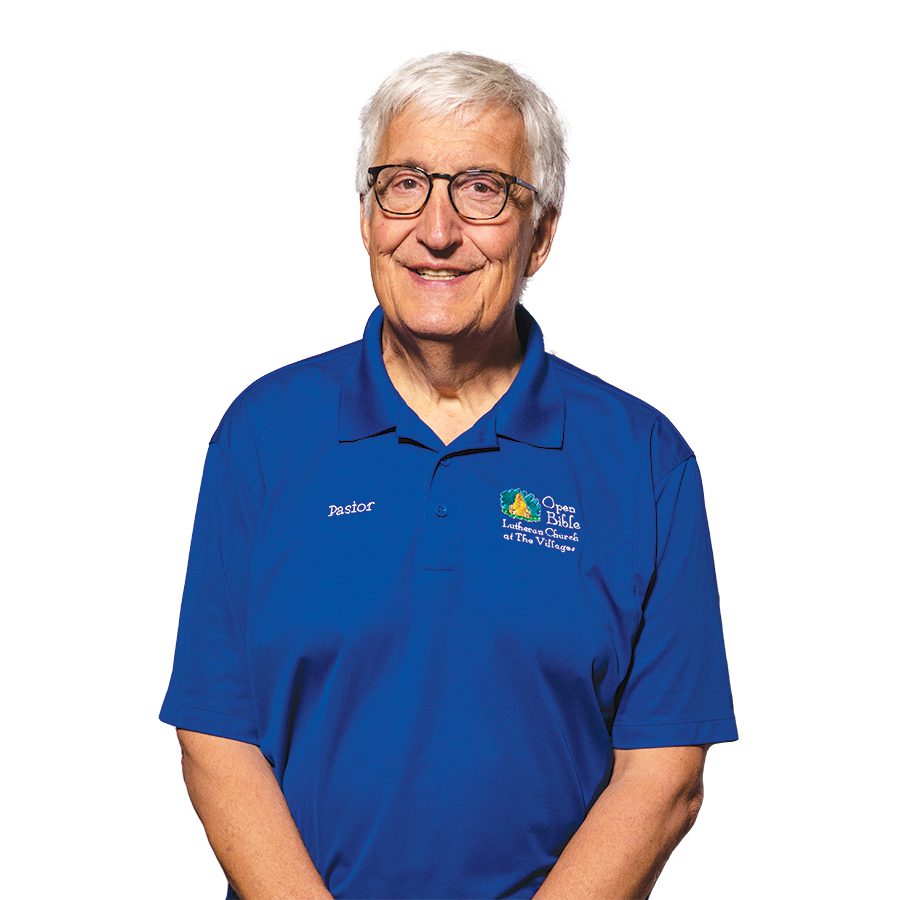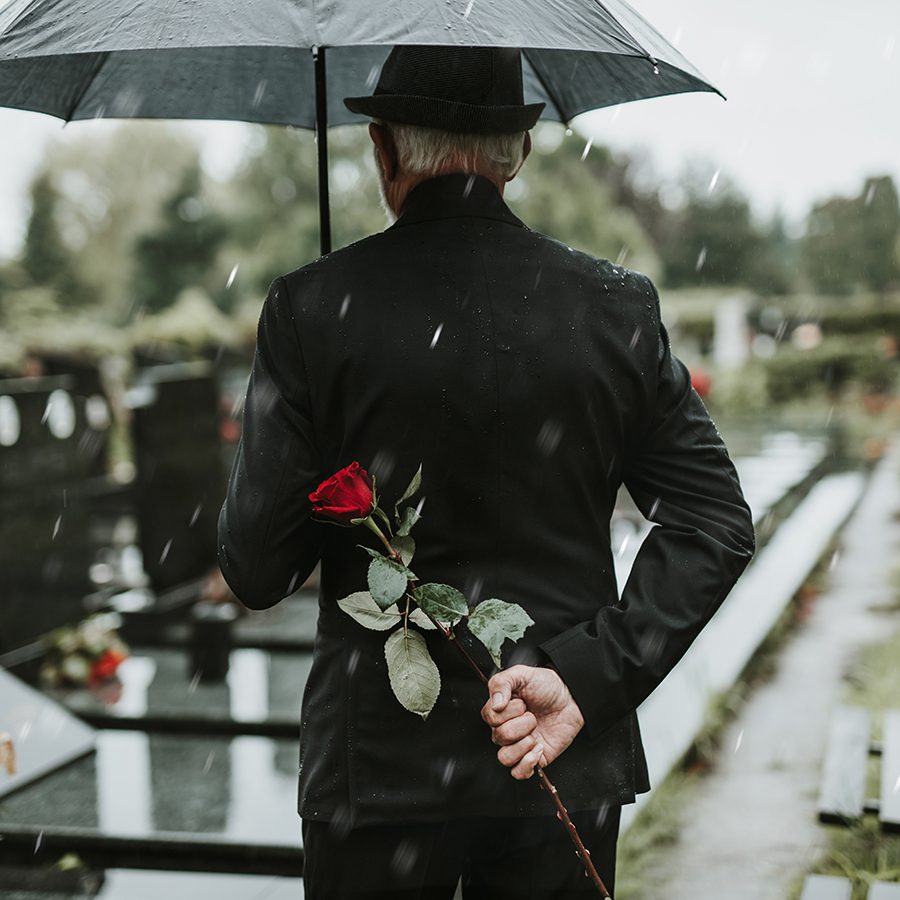Grief Can Vary Greatly
Good Grief
The grieving process is different for everyone, but healing is possible.
I don’t think anyone knows how precious life is until this happens to you,” says Diane Paccione, whose husband of 58 years died in December 2020.
“Being an independent person, I thought I could go on with my life, but it’s not as easy as it sounds,” says Diane, a resident of the Summer Hill neighborhood of The Villages since 2016.
Losing her spouse forced Diane to navigate completely unfamiliar territory.
Not one way
“There are an infinite number of ways to grieve. The most important thing is to validate your feelings and the process you’re going through,” says W. Steven Saunders, Psy.D., a licensed psychologist at Central Florida Psychology in Clermont.
“The average person will go through a grief process lasting anywhere from six months to two years,” says Dr. Saunders. “I’ve had people who thought they’d gotten through it and were going on with their lives. Then something happens to trigger that grief years later and it’s like it happened all over again.”
Saunders tells people to expect grief to reappear, particularly around birthdays, anniversaries, and other key dates.
In 1969, psychiatrist Elisabeth Kübler-Ross developed the theory of the Five Stages of Griefô, which suggested that people experience the following stages after a loved one dies: denial, anger, bargaining, depression, and acceptance.
Dr. Saunders agrees that those are the most common stages of grief, but he’s found that not every person goes through all of them.
Grief can vary greatly depending on who died—and when.
“When my great grandfather died at 91, that was the happiest funeral I’d ever been to. He’d lived a long happy life of meaning and accomplishment,” recalls Dr. Saunders. “It can be a lot harder if someone dies young or unexpectedly and you don’t feel they had the ability to live out their lives.”

W. Steven Saunders, Psy.D.
Licensed Psychologist
www.CentralFloridaPsychology.com
605 West Montrose Ave, Clermont
What not to do
When you’re grieving, it’s normal to want to “do” something to feel better.
Dr. Saunders cautions against impulsively making major decisions–such as moving to another city or state.
“This happens a lot when a spouse dies, but it might not be the right decision,” he notes. “Ask yourself, ‘Am I running away from my grief?’ You can pack up and move to another city, but you’ll take your grief with you.”
Dealing with material possessions of your loved one can also be a challenge. In the event of a child’s death, this aspect of grieving can be especially painful.
If you’re conflicted, Dr. Saunders recommends boxing items and putting them in storage rather than immediately disposing of them or donating them. You can go through things later when your grief isn’t so acute.
Rearranging the furniture in a loved one’s room or the space you shared may also prove beneficial.
Emotional healing
Everyone has their own grieving timetable, but there comes a point when functioning returns and you get back to some sort of normal routine. You’ll realize–perhaps with surprise–that you can make it through the day without feeling overwhelmed.
“There’s a shift that happens. You stop focusing on the negative part and start remembering and talking about the good times with that person,” says Dr. Saunders. “It doesn’t mean you’re not sad they’re gone. You may always feel that on some level, but you’re not overwhelmed by it anymore.”
What about new relationships?
Common advice to those who have lost a spouse is not to start a new relationship until they’ve “processed” their grief. There’s sound wisdom behind that guidance, but again, there’s no “one-size-fits-all” program for moving through grief and finding love again.
“Some people just do not have the capacity to be alone, so they jump back into a new relationship right away. That may or may not be a good idea,” says Dr. Saunders.
“I try to encourage people not to be in a hurry to get in a new relationship. Give yourself at least a few months to process it and think about what you’re doing. You don’t want to be looking at the person you married out of impulse a couple years later and asking yourself, ‘What have I done?’”
He points out that many men, especially from older generations, feel very lost since their spouse was their caretaker and primary source of love.
Help yourself heal
It’s important to take as much time as you need to grieve, whether alone or with others. Self-care and awareness are crucial.
“For some people, going back to work is therapeutic. Focusing on their routine can be very helpful,” says Dr. Saunders, adding that other people may need to take additional time off from work.
“Be mindful of how you’re feeling and ask, ‘Is grief impacting my day-to-day functioning?’ If it is, this is telling you, you need more time,” he says.
Connecting with friends and loved ones can be healing.
“Sometimes joining a grief group can be very helpful. Not feeling alone is so important, which is why a group can help,” says Saunders.

GriefShare
Many people turn to GriefShare, a support group for those who’ve lost a loved one to death.
GriefShare is a 13-session program that promotes discussion and provides videos with mental health professionals, including counselors, psychiatrists, and psychologists.
“It’s clinically-informed, but Christ-centered and biblically based,” explains Sam Hodges, president of GriefShare and its parent organization, Church Initiative, Inc., based in Wake Forest, North Carolina.
GriefShare has expanded greatly since it began in 1998. Ninety-five percent of its groups are in the U.S., but GriefShare exists in many other countries. From August 2021 through August 2022, there were 14,929 GriefShare groups worldwide.
According to Hodges, one of the biggest benefits for attendees is the realization that their grief experience is normal and they’re not alone.
“A lot of people are hesitant to talk about how grief is affecting them. One of the biggest reliefs people have is finding out, ‘I’m not going crazy!’ When they start coming to GriefShare, they find out they’re okay. It’s helpful to be with others who are going through the same thing,” says Hodges.
Open Bible Lutheran Church Pastor Mark Schulz says his church in Oxford has offered two GriefShare sessions a year for the past seven years. He notes that some of the highest attendance occurred during the pandemic.
“Most of the people in our Villages community are attending because they’ve lost a spouse,” says Schulz, adding that GriefShare “really is good at covering the different things you deal with in the loss of a spouse.”
Diane Paccione attended GriefShare at Open Bible Lutheran Church in the fall of 2021.

Open Bible Lutheran Church in Oxford has offered two GriefShare sessions a year for the past seven years.
– Pastor Mark Schulz
“My husband had been in Hospice, so I’d had a social worker and thought I’d had enough ‘counseling.’ My daughter saw an ad for GriefShare in the paper. I wanted to find closure and understand why I felt the way I felt,” says Diane. “After three or four sessions, I realized it was going to be helpful. The GriefShare meetings are very valuable. They help you understand how very precious life is, and that, given time, all will work out.”
Gene McConkey, a regular attendee of Open Bible Lutheran, signed up for GriefShare after losing his wife of 53 years earlier that year.
“For me, cleaning out my house was helpful,” recalls Gene, who felt that task provided closure and prepared him to open a “new chapter” in life.
“I was taken aback by how differently people grieve and how long they do. For some, it’s years. For others, it’s shorter,” says Gene, adding that having nobody to confide in was the toughest part of losing his wife.
Don’t go it alone
Not a “joiner?” According to Dr. Saunders, meeting with a therapist can be just as healing as group therapy.

